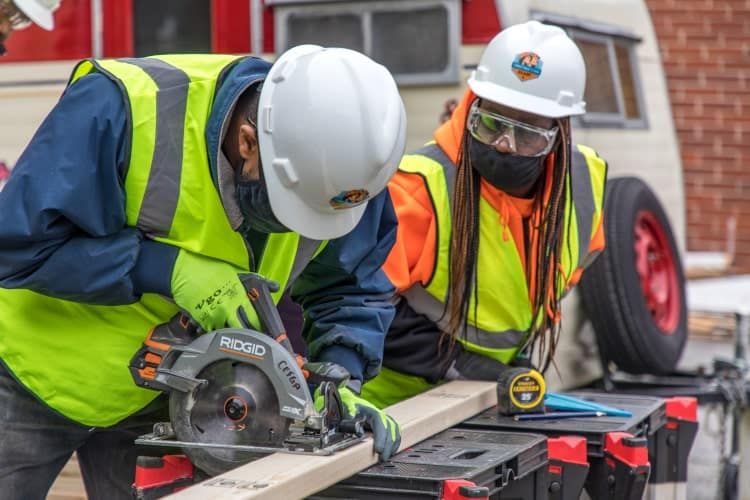Will Your Job Ever Become a Career?

There are two kinds of jobs out there. Jobs that will become careers and jobs that won’t. And among many of the jobs that won’t, there are a lot of them that simply can’t.
A job is work you do to earn money. A career is more than that. It’s a field of work. It’s a discipline where you develop expertise, grow, take on greater responsibilities over time, and produce things that you can take pride in.
Some jobs can get you there. Will yours?
These types of jobs won’t become careers
One of the defining characteristics of a career is that it allows you to continuously hone your skills and earn more money as those skills improve. So in order for a job to become a career, that job needs to require some kind of skill in the first place.
Well, there are lots of jobs that don’t require special skills. These “unskilled labor” positions are available everywhere to pretty much anyone of legal working age. Since they don’t require special skills, anybody can do them. And since you don’t really learn any special skills while on the job, there’s really no way to advance.
Have you ever heard the term “dead end job?” That’s what these unskilled positions are.
They’re a dead end in the sense that once you start working the job, there’s no real way to advance. And since there’s no way to advance, those jobs can’t become careers.
What are these jobs? They’re common among big box retailers, fast food restaurants, and warehouses. Other types of employers also hire unskilled labor, but what they all have in common are:
- Low wages that don’t increase much or at all over time
- Little to no potential for advancement
These types of jobs won’t become careers. But even if unskilled labor is the only type of job you’ve ever worked, there are still ways to exit the cycle of low-wage work and take a new job that will grow into a career.
Types of jobs that can grow into careers
There’s a line of thinking that says you have to go to college in order to find a job that becomes a career.
Well, it’s true that college graduates are better positioned to take certain types of jobs that can grow into secure and highly paid careers. But college graduates absolutely do not have a monopoly on all the careers available to American workers! There are a number of good jobs that don’t require college and that offer the potential to become lifelong careers.
Many of those jobs are known as “skilled trades” positions.
Note the word “skilled.” Since you need to be skilled in order to do these jobs, there are usually ways to hone and and improve those skills over the long term. And since there are ways to get better at the work, there are also ways to gain promotions and earn more money.
In short, these jobs can grow into careers.
Skilled trades careers refer to hands-on occupations in the industrial or construction realm. If you’ve ever seen an HVAC technician, electrician, or plumber in action, you’ve seen the skilled trades workers. There are many other skilled tradespeople, though, whose work isn’t as often on display to the general public. Think concrete finishers at job sites or heavy equipment operators. Welders, too. Workers in those jobs are also skilled tradespeople, and experienced practitioners often outearn their peers with college degrees.
How to get started in the skilled trades
You don’t need a college degree to get started in the skilled trades. Even if you’ve only worked low-wage, unskilled jobs in the past, there are ways for you to get started in the trades and build an exciting and rewarding career.
The best way is through a dedicated skilled trades training program that gives you the basic skills and credentials you need to get your first construction or trades job. One of those programs is Construction Ready, a 20-day program that’s fully funded by private donations and government grants. You can get the training you need to begin a career in the skilled trades, and you won’t have to pay anything!
At Construction Ready, you also get introductions to employers. 97% of our graduates secure their first construction job before completing the program!
If there isn’t a program like Construction Ready in your area, another option might be a community or technical college. Many of these institutions offer associate’s degrees or certificates in specific trades, such as plumbing or HVAC. It will cost more and take longer than a program like Construction Ready, but it’s absolutely worth it if you want to break the cycle of low-wage work and build a lifelong career.
To learn more about Construction Ready or sign up for training, get in touch today! We’ll talk to you about your career goals, and you’ll have the opportunity to sign up for an information session to find out more about the program.


